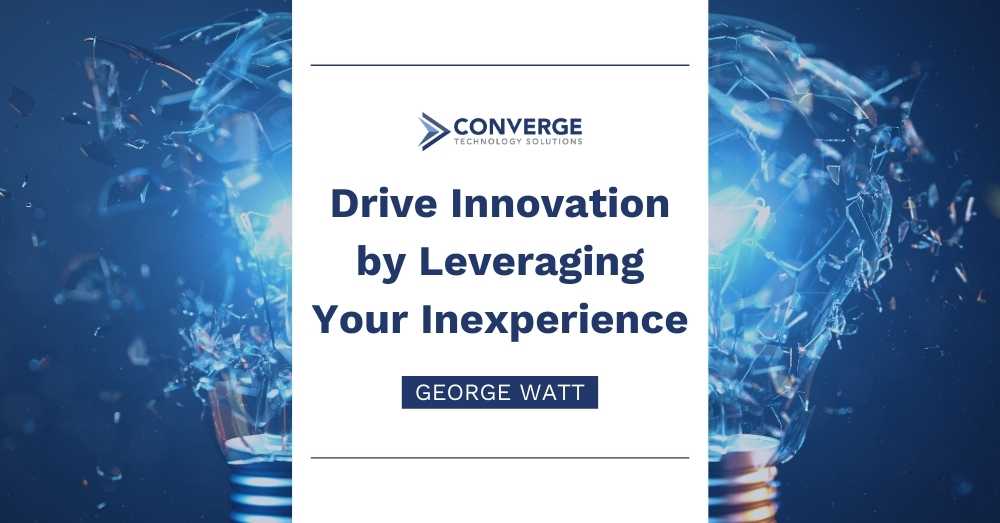What makes someone truly qualified to work in information technology? In recent months, my news feeds have been teeming with passionate, and at times toxic, debates on the level of experience required for an IT career. These debates focus on the degree someone possesses, the school they went to, or the number of years they have written code in a specific language. This definition of “experience” is, in my experience, much too narrow. As a result, those who adopt this definition are missing out on one of the greatest pathways to success – inexperience. Here are five reasons why.
1. Unconsciously unbiased
New employees are often able to find creative solutions to chronic or well-accepted problems because they have not yet become constrained by the bias that often exists in people with more experience in a domain. Essentially, they have not “yet” learned a problem cannot be solved, so they solve it in a creative way. They are unencumbered by the domain’s folklore wisdom.
2. Diversity: Innovation’s rocket fuel
The life experiences of employees new to a domain could be vastly different than their more experienced counterparts. They may have grown up in a different location or had different interests unrelated to their work. This can lead to clever approaches to problem solving that are unrelated to the techniques, tools, and tactics typically applied in the domain. For example, someone with a background in solving problems related to white water kayaking or rock climbing may apply those to solving a business problem in a novel way. Diversity is the rocket fuel of innovation, so when this happens, your team truly possesses a strategic weapon.
3. Bidirectional mentoring
Whether they have just graduated from a computer science degree program or a coding boot camp, new team members have likely been exposed to the latest tools and techniques, and they know how to get the most out of them. As they are being mentored in their new domain, they can help more experienced team members by exposing them to the latest tools and helping others to get the most out of them. This bidirectional value exchange can help the new team members to drive better working relationships earlier, while legitimately improving productivity and reinforcing a team culture of openness and lifelong learning.
4. Passion
People new to a domain are often the most passionate about it. After all, they’ve just made a decision to focus their life’s work on it. This is often too narrowly attributed to “youthful exuberance”. Without a doubt, the passion and energy younger team members often possess can be infectious. Though, I’ve met many people who changed their focus after long careers and were just as passionate about their new path as their much younger counterparts.
5. False stereotypes
Let’s put to rest the unbelievably frustrating misconception that young team members cannot possibly be as effective as their more experienced contemporaries, as well as the blood-boiling gender stereotypes that are still commonplace. During one episode of “TechViews Unplugged” a decade ago, Andi Mann and I covered the story of then seventeen-year-old Brittany Wenger who had won the Google Science Fair with her “Global Neural Network Cloud Service for Breast Cancer”. It was ninety-nine percent accurate on seven million trials – more accurate than commercial systems developed by experienced scientists. If that’s not enough to convince you, Sergey Brin and Larry Page met in their early 20s, and released the first version of Google at approximately age 23.
Beyond obvious
We haven’t even begun to explore the value of the skill set that someone who took a “non-traditional” pathway to get to your team might bring. Think of how fortunate you would be to have someone with a communications or performing arts degree in your team when it comes time to pitch your idea or provide training on a complex topic.
Leverage your “inexperience” and fuel your team with diversity.





